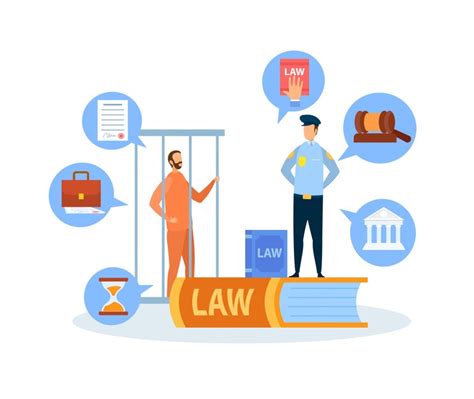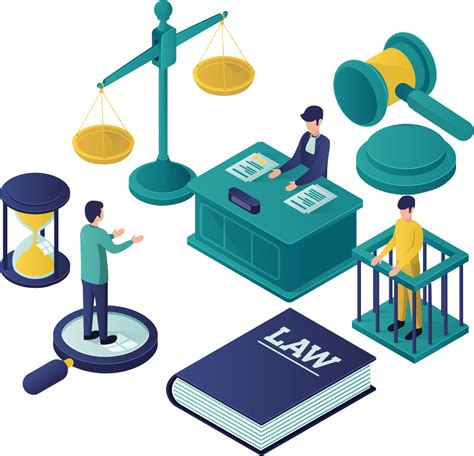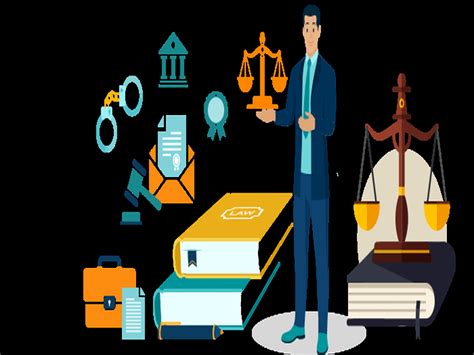In the fast-paced world of automotive decisions, procrastination can be a significant barrier to mindful consumption and purposeful living. Understanding the psychology behind procrastination is crucial for making thoughtful choices that align with sustainability and personal values. This article delves into the impact of procrastination on vehicle purchases, exploring how delays in decision-making can hinder both individual satisfaction and environmental goals. By examining common triggers and emotional drivers, we’ll highlight the differences between procrastination and mindful consumption. Additionally, we’ll provide practical strategies and case studies to help overcome procrastination, ultimately guiding you towards automotive decisions that reflect a mindful and meaningful lifestyle.
Join lealhotel.com as we uncover the details of this topic.
1. Understanding the Psychology of Procrastination
Procrastination is a complex psychological phenomenon rooted in our brain’s response to stress, fear, and decision-making. At its core, procrastination often stems from a delay in taking action due to an aversion to tasks perceived as overwhelming or unpleasant. This avoidance is closely linked to emotional regulation, where individuals postpone decisions to escape immediate discomfort, despite the long-term consequences. In the context of automotive choices, procrastination can manifest as hesitation in making vehicle purchases or postponing maintenance, driven by fears of making the wrong decision or facing financial strain. Understanding this behavior involves recognizing the interplay between cognitive distortions, such as perfectionism and self-doubt, and emotional responses. By addressing these underlying psychological factors, individuals can better manage procrastination and make more deliberate, mindful decisions in the automotive world.

2. The Impact of Procrastination on Decision-Making in the Automotive Market
Procrastination significantly impacts decision-making in the automotive market, leading to various challenges for consumers. When individuals delay making vehicle-related choices, such as purchasing a new car or addressing maintenance needs, they often encounter increased stress and dissatisfaction. This delay can result in missed opportunities for securing better deals or benefiting from time-sensitive promotions. Additionally, procrastination can lead to a cycle of indecision, where consumers are unable to commit to a choice, causing further delays and frustration.
In the automotive sector, procrastination can also affect long-term financial and environmental outcomes. For instance, postponing vehicle maintenance can result in more severe mechanical issues and higher repair costs. On the sustainability front, delaying the purchase of a more fuel-efficient or eco-friendly vehicle may contribute to a greater environmental impact due to continued use of less efficient models.
Moreover, procrastination often exacerbates the decision-making process by creating a sense of urgency when action is finally taken, leading to rushed choices that might not align with personal values or environmental considerations. By understanding these impacts, consumers can recognize the importance of overcoming procrastination to make informed and timely decisions that reflect both their needs and their commitment to a sustainable lifestyle.

3. Common Triggers for Procrastination in Vehicle Purchases
Several common triggers contribute to procrastination in vehicle purchases, often rooted in psychological and emotional factors. One major trigger is the fear of making a wrong decision. The significant financial investment involved in buying a vehicle can heighten anxiety about selecting the wrong model or facing buyer’s remorse, leading individuals to delay the decision.
Another trigger is the overwhelming amount of information and choices available in the automotive market. The process of researching various models, comparing features, and evaluating financing options can be daunting, causing decision fatigue and hesitation.
Financial concerns also play a critical role. Uncertainty about one’s budget or future expenses can lead to procrastination, as individuals may avoid committing to a purchase until they feel more secure about their financial situation.
Additionally, the perception of vehicle purchases as time-consuming and complex can deter action. The process often involves negotiations, paperwork, and lengthy transactions, which can be intimidating and lead to avoidance.
Lastly, the desire for perfection or ideal conditions can contribute to procrastination. Consumers may wait for the “perfect” deal or optimal timing, which can delay the decision indefinitely. Recognizing these triggers is essential for overcoming procrastination and making timely, informed vehicle purchases.

4. The Role of Emotional Drivers in Procrastination
Emotional drivers play a significant role in procrastination, especially in the context of vehicle purchases. Anxiety about making the wrong choice is a primary emotional factor, causing individuals to delay decisions to avoid potential regret or embarrassment. This fear can be exacerbated by high-stakes financial commitments and the pressure to choose a vehicle that meets both practical needs and personal preferences.
Another emotional driver is the desire for perfection. Consumers may procrastinate as they wait for the ideal vehicle or the perfect deal, driven by a belief that a better opportunity will arise. This pursuit of perfection often leads to indecision and delays.
Additionally, emotional fatigue and stress from the car-buying process can contribute to procrastination. The complexity of researching, comparing, and negotiating can feel overwhelming, leading individuals to avoid taking action altogether.
Understanding these emotional drivers is crucial for addressing procrastination. By recognizing and managing these feelings, individuals can make more deliberate and timely decisions, leading to a more satisfyi

5. Procrastination vs. Mindful Consumption: Key Differences
Procrastination and mindful consumption represent two distinct approaches to decision-making, particularly in the automotive world. Procrastination is characterized by delay and avoidance, often driven by fear, anxiety, or the overwhelming nature of the decision-making process. It results in indecision and can lead to rushed or less thoughtful choices when action is eventually taken. This approach often reflects a reactionary mindset, where immediate discomfort is avoided at the cost of long-term benefits.
In contrast, mindful consumption involves making deliberate and thoughtful choices that align with one’s values and priorities. It requires an active engagement in the decision-making process, focusing on sustainability, practicality, and personal satisfaction. Mindful consumers take the time to research, reflect, and evaluate their options carefully, ensuring that their decisions are informed and purposeful.
The key difference lies in the approach to decision-making. While procrastination involves avoidance and delay, mindful consumption is proactive and intentional. Mindful consumers embrace the decision-making process as an opportunity to align their choices with their values, leading to more fulfilling and responsible outcomes. Understanding these differences can help individuals shift from procrastination to a more mindful and purposeful approach in their automotive decisions.

6. How Procrastination Affects Sustainability and Environmental Choices
Procrastination significantly impacts sustainability and environmental choices, particularly in the automotive sector. When individuals delay vehicle purchases or maintenance, they often continue using older, less efficient models that contribute to higher emissions and increased environmental impact. This delay in adopting newer, more fuel-efficient or eco-friendly vehicles can hinder progress towards reducing one’s carbon footprint.
Furthermore, procrastination can affect timely decision-making about sustainable vehicle options, such as electric or hybrid cars. By postponing the decision, consumers may miss out on opportunities to take advantage of incentives or rebates designed to encourage the purchase of environmentally friendly vehicles. This delay can also result in continued reliance on fossil fuels, exacerbating environmental issues.
In addition, procrastination in addressing vehicle maintenance needs can lead to more frequent breakdowns and less efficient performance, further increasing emissions and waste. Overall, procrastination undermines efforts to make environmentally conscious choices, emphasizing the need for timely action to align with sustainability goals and reduce one’s ecological impact.

7. Strategies to Overcome Procrastination in Automotive Decisions
Overcoming procrastination in automotive decisions involves implementing practical strategies to foster timely and mindful choices. Start by setting clear, actionable goals and deadlines for each step of the decision-making process. Break down the process into smaller tasks, such as researching options, test-driving vehicles, and evaluating financing, to make the task less overwhelming.
Create a structured plan with specific timelines to guide your decisions. Prioritize your values and sustainability goals, and use these as a framework to assess your options, helping you stay focused on what truly matters.
Address emotional barriers by acknowledging fears and concerns, and seek support or advice from trusted sources to gain perspective. Establishing a decision-making routine can also reduce procrastination by creating a consistent approach to tackling automotive choices.
Finally, recognize and reward progress to maintain motivation. By adopting these strategies, you can reduce delays, make more informed decisions, and align your vehicle choices with your values and environmental goals.

8. The Importance of Mindfulness in Reducing Procrastination
Mindfulness plays a crucial role in reducing procrastination by fostering a more intentional and focused approach to decision-making. By practicing mindfulness, individuals become more aware of their thoughts, emotions, and behaviors, which helps identify and address the underlying causes of procrastination. This heightened awareness allows for a clearer understanding of decision-making triggers, such as fear or overwhelm, and enables individuals to manage these emotions effectively.
Mindfulness encourages individuals to stay present and fully engage with the decision-making process, rather than avoiding it due to stress or uncertainty. It helps shift focus from the immediate discomfort of making a decision to the long-term benefits and alignment with personal values, such as sustainability and purposefulness.
Additionally, mindfulness practices, such as meditation and reflection, can reduce anxiety and decision fatigue, making it easier to take action. By integrating mindfulness into the decision-making process, individuals can overcome procrastination, make more deliberate choices, and align their automotive decisions with their broader goals

9. Case Studies: Mindful Consumers Who Overcame Procrastination
Case studies of mindful consumers who overcame procrastination reveal how intentional decision-making can lead to positive outcomes in the automotive world. One example is Sarah, who had long delayed purchasing a new vehicle due to fear of making a costly mistake. By practicing mindfulness and setting clear goals, she was able to break down the decision-making process into manageable steps. She researched eco-friendly vehicles, test-drove several models, and set a deadline for her purchase, which helped her overcome her procrastination. Sarah ultimately chose a hybrid vehicle that aligned with her sustainability goals and provided greater satisfaction.
Another case is James, who struggled with procrastination due to financial concerns. By using mindfulness to address his anxiety and setting a structured plan, he was able to assess his budget realistically and explore financing options. He then made a timely decision to buy a fuel-efficient car, which not only fit his budget but also contributed to his environmental values.
These case studies highlight how mindfulness can help individuals overcome procrastination by providing clarity, reducing anxiety, and enabling more informed and purposeful automotive decisions.

10. Practical Tips for Aligning Automotive Choices with a Purposeful Lifestyle
Aligning automotive choices with a purposeful lifestyle involves several practical strategies to ensure decisions reflect both personal values and sustainability goals. Start by defining your core values and priorities, such as environmental impact, financial considerations, and long-term satisfaction. Use these as guiding principles throughout the decision-making process.
Conduct thorough research on vehicles that align with your values, focusing on fuel efficiency, eco-friendly options, and overall sustainability. Compare different models, considering not only the initial cost but also long-term benefits like reduced emissions and lower operating costs.
Set specific goals and deadlines for making your decision to avoid procrastination. Break down the process into manageable steps, such as evaluating options, arranging test drives, and securing financing. Creating a structured plan can help keep you focused and motivated.
Incorporate mindfulness practices, such as reflection and meditation, to manage stress and gain clarity. This approach will help you stay present and make thoughtful choices.
Finally, seek advice from trusted sources or consult with experts to ensure your decisions are informed and aligned with your goals. By following these tips, you can make automotive choices that support a purposeful and sustainable lifestyle.

Understanding and addressing procrastination in automotive decisions is essential for making mindful and purposeful choices. By recognizing the psychological triggers and emotional drivers behind procrastination, individuals can adopt strategies to overcome delays and align their decisions with their values. Embracing mindfulness and setting clear goals can help manage stress and focus on sustainability, leading to more responsible vehicle choices. Through practical tips and real-world examples, it’s clear that proactive and thoughtful decision-making not only enhances personal satisfaction but also contributes to environmental sustainability. Embrace these insights to make automotive choices that reflect both your needs and your values.
lealhotel.com